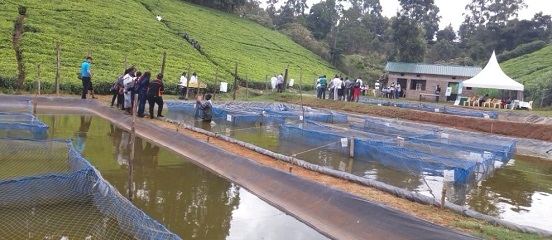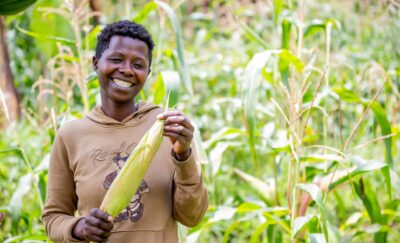News
27 February 2018
Farm Africa and WorldFish set to release findings for the acclaimed feed versus strain trials

Key players in the aquaculture sector including county fisheries officials and farmers recruited by Farm Africa’s Kenya Market-led Aquaculture Programme (KMAP) are set to converge in Karatina and Kisumu respectively for the release of the preliminary results of the recently concluded WorldFish feed versus strain trials.
This follows seven gruelling months of the trials by Farm Africa and WorldFish aimed at determining the optimal production methods for different tilapia strains. The dissemination will be done in two consecutive farmer field days in Karatina University on 27 February and 2 March 2018 at LBDA Kibos fish farm, Kisumu.
The experiment, which is a first of its kind at this large scale in Kenya, began on 10 July 2017 and was conducted in two climatic zones with one site being in a warmer region (Kisumu) and the other in a colder one (Karatina). The process involved stocking 100 fingerlings from different hatcheries in 3 x 2 hapa nets and feeding them with four types of feed (two local and two imported). This was replicated in 48 hapa nets at each site in three standard ponds. Among the parameters collected and recorded on a daily and weekly basis included fish weight, length, dissolved oxygen, temperature, pH, ammonia and water conductivity.
Arnoud Meijberg, the KMAP Team Leader said: “Through the feed versus strain trials, we sought to compare the growth and performance of different strains of tilapia to locally manufactured and imported feeds, and as such advise farmers on what is feasible for them to produce profitably. This will contribute immensely to the development of a sustainable aquaculture industry that generates sustainable incomes, food security and employment.”
Sven Genschick, a WorldFish researcher said, “In addition to comparing the performance of strains under the application of different feeds, we also looked at growth and performance under two different climates so as to determine the impact of temperature in fish production.”
The field days will provide a unique opportunity for relevant stakeholders to witness the performance of fish grown with different types of feeds. The findings and recommendations of the trials will be published in a scientific journal for general knowledge sharing and adoption by farmers. Any innovations arising from the experiment will be shared with the relevant stakeholders.




